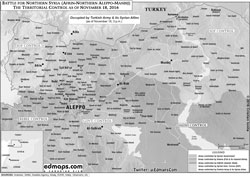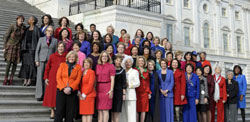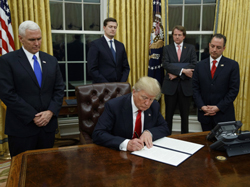President Donald Trump launched a missile strike April 6 against Syrian weapon bases controlled by the Bashar al-Assad regime in response to their use of chemical weapons on civilians.
The attack consisted of 60 missiles, with only 59 actually hitting the target, going against the al-Shayrat air base, where the chemical weapons were set off to hit the town of Khan Sheikoun.
Trump briefed journalists hours after the attack and stated, “There can be no dispute that Syria used banned chemical weapons, violated its obligations under the Chemical Weapons Convention and ignored the urging of the U.N. Security Council. Years of previous attempts at changing Assad’s behavior have all failed and failed very dramatically.”
The missile strike is the first direct military action that was taken by the U.S. since the civil war in Syria broke out six years ago.
This all has been a shock to the political world, since Trump has been extremely vocal about his thoughts on staying out of Syria before of his presidential campaign.
Two years after the start of the civil war in Syria, the U.N. weapons inspectors reported that chemical weapons were used in Ghouta.Trump tweeted against action in Syria by saying, “President Obama, do not attack Syria. There is no upside and tremendous downside. Save your ‘powder’ for another (and more important) day!”
Dr. Saliba Sarsar, a professor of political science, believes that there needs to be a way to figure out how to solve the Syrian conflicts through diplomacy and negotiation, but also have the force of arms present if needed.
He said, “Although I want peace to happen, I believe President Trump’s actions were very measured. His plan was very calculated; he did not cause much damage. He was sending a warning to Assad, to the Russians, and to the world as a whole, saying ‘If I need to I will use force.’”
Russia’s deputy U.N. representative, Vladimir Safronkov, issued a warning after he was informed of possible interference from the U.S. “We have to think about negative consequences, negative consequences, and all the responsibility if military action occurred will be on shoulders of those who initiated such doubtful and tragic enterprise,” he said.
After the attack, Russia notified the U.S. that they would suspend a military communication channel. This channel was set up to avoid mid-air incidents between Russian and U.S. pilots in Syrian skies.
Dr. Thomas Pearson, a professor of history, explained that Russia’s involvement in Syria plays a key factor to the development of their civil war. “Russia has several strategic interests in its involvement in Syria. Putin has sought to restore international respect for Russia’s power in the world and particularly in the Middle East, and to ensure that there be no recurrence of an “Arab Spring” in Syria.”
Secretary of State Rex Tillerson will travel to Moscow on April 12 to meet with the foreign minister and other Russian officials to discuss further developments.
Pearson expects a very difficult visit because of the Trump administration’s recent rhetoric towards Russia.
“This language is completely contrary to the language about Russia that Trump used during the presidential campaign and the Kremlin and its media are publicly “bemoaning” Trump’s capitulation to the neo-conservatives in Washington.
However, given Tillerson’s history of strong personal ties with Putin and members of his “inner circle,” in private he may be able to shift the dialogue back to common U.S. and Russian strategic interests in Syria,” he said.
Sarsar strongly believes that force should be the last resort, but with a regiment like Assad’s, it is hard to do. “Assad cannot have it all. He keeps making promises, making agreements to stop using chemical weapons, and keeps breaking them. And that is totally unacceptable.”
IMAGE TAKEN from Google.com




